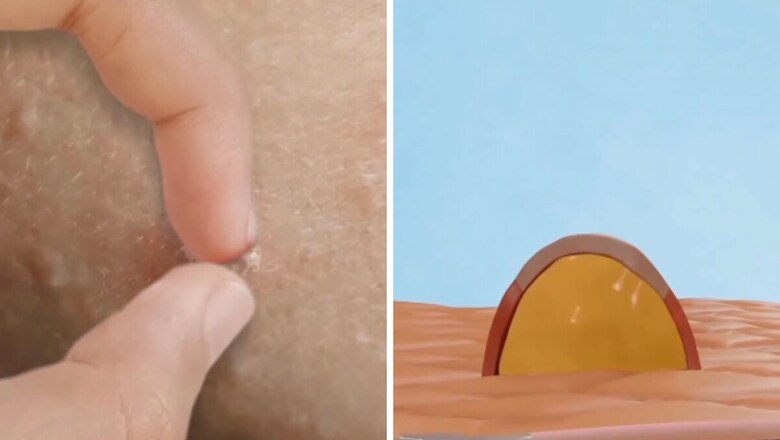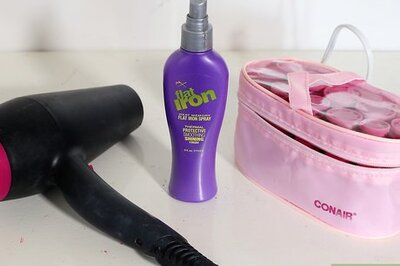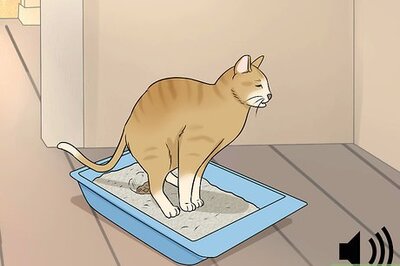
views
Pimples are common, and often a troublesome skin condition. Overproduction of oil and a build-up of bacteria can lead to the formation of these red, tender bumps on skin — which we term as pimples. Typically, during puberty, individuals experience an influx of pimples due to hormonal changes. Some people opt to pop these pimples, but is this advisable? A viral video on Instagram attempted to answer this question. Pimples can be caused from various factors, and the accumulation of bacteria on the face is a common trigger. Understanding the cause of pimples is crucial. As per information from verywellhealth.com, when facial bacterial infections occur, the skin creates a protective barrier, resulting in the formation of a pimple, which is essentially a boil aiming to address the infection. Beauty experts suggest that when a pimple emerges on the face, it fills with a liquid produced by the body to combat bacteria. This fluid, containing white blood cells, serves to eliminate the infection. Once its task is completed, that is the bacteria is eradicated — the pimple naturally vanishes.
A post shared by (@unseen.vigyan)
Indeed, the pimple, often seen as a beauty concern, is actually a part of the skin’s cleansing process. Popping a pimple prematurely disrupts this natural process, allowing the infection-causing bacteria to spread, leading to more pimples. In the future, it’s advisable to refrain from bursting pimples, as doing so can exacerbate the infection.
Common myths of acne:
1) While there is no conclusive evidence linking constipation directly to acne, heightened stress due to severe consternation can potentially trigger breakouts through the release of stress hormones. Acne is not solely a result of skin dirt; however, a dirty face may permit germs to exacerbate existing acne, leading to larger boils. It’s advised to keep your face clean, but excessive washing may cause skin irritation.
2) Acne is a chronic condition, indicating its potential for prolonged presence beneath the skin’s surface. Managing acne requires ongoing attention, and seeking professional help is advisable for effective management.
3) Experts note that, similar to certain foods, stress itself doesn’t directly cause acne but can occasionally exacerbate it. Research, such as a study comparing students’ acne before and after exams, has found that increased stress levels corresponded with a worsening of acne in the participants.
What's your reaction?




















Comments
0 comment